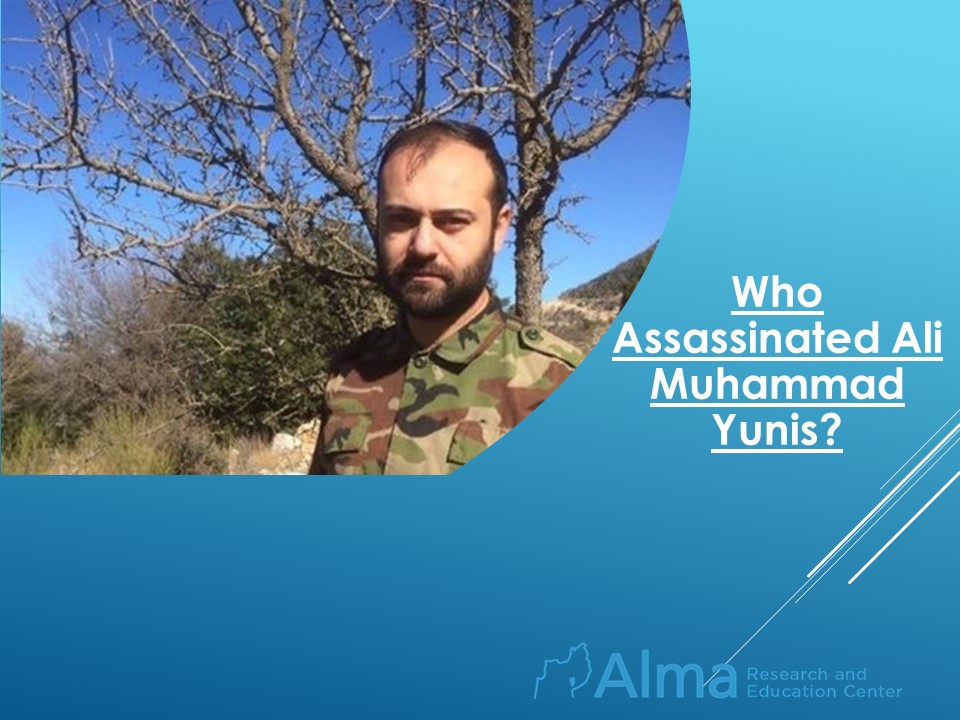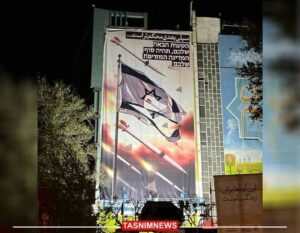On April 4, 2020, and in broad daylight (!), In the midst of Hezbollah controlled territory in southern Lebanon, a senior Hezbollah member by the name of Ali Muhammad Yunis, was assassinated. The question is, who is Ali Younis, who is responsible for his elimination, and why is he eliminated?
In broad daylight of 4 April 2020, Ali Muhammad Yunis was traveling in his vehicle together with his bodyguard on the road leading from the village of Qaaqaait Al Jisr to the village of Zawtar El Gharbiyeh in the southern Lebanon district of Nabatieh, an area that is distinctly Shiite and under full control and supervision of Hezbollah.
While driving along, they were caught in a planned ambush waiting for them on the road. Muhammad Yunis was killed and his bodyguard was wounded. Some reports claim that during the attack Ali Yunis had been stabbed with a knife.
Ali Yunis, a native of the village of Nabi Chit in southern Lebanon, was not an ordinary Hezbollah activist. Based on Lebanese and Iranian intelligence sources, Yunis was apparently a senior operative in Hezbollah’s security unit. One of the security unit’s central functions is to expose any collaborators with foreign intelligence organizations, with an emphasis on Israeli and US intelligence bodies.
Based on our familiarity with the organization, Hezbollah’s security unit is considered one of its central units, which determines everything that goes on…
The security unit is involved in all Hezbollah activities in both Lebanon and outside Lebanon and is essential in maintaining Hezbollah’s stability and strength against foreign attempts to sabotage and weaken its activities. The security unit and its associates are a severe deterrent to the Shiite community in Lebanon in general and to Hezbollah activists in particular, and even more accurately, we can declare that there is real fear from them among the population.
Hezbollah imposed a blackout on the investigation into the killing of Ali Muhammad Yunis, denying that he had being stabbed during his assassination, at the same time announcing a suspect in the act had been arrested. Social networks and other publications (both Arab publications and Israeli publications), claimed Israel was actually behind the assassination. However, is that the case? Who really killed Ali Yunis?
As of now, there is no information that indicates the identity of the assassin. Carrying out an assassination of a senior Hezbollah security unit operative in broad daylight, in a Hezbollah-controlled area is not something to be taken for granted. Such a daring assassination with such characteristics can only mean that the assassin is not local from within Lebanon, only an organization with large intelligence and operational capabilities can perform such an assassination, namely: a state organization as Israel. Nonetheless, why would Israel jeopardize a military force or disclose its operational capabilities (even if the force/capability is that of a proxy acting on its part), just for the sake of assassinating an operative (however senior)? An operative that does not serve in one of Hezbollah’s operational units and that does not directly threaten Israel in a tactical manner such as a “ticking bomb” or a strategic senior activist in the missile precision project.
In our estimation, the preciseness and boldness of the assassination in broad daylight reinforce the claim that the assassination is in fact an internal organizational action (which can be due to a personal or criminal background). Internal power struggles or organizational corruption that have always prevailed in Hezbollah have in fact intensified in the wake of the major economic crisis in Lebanon in general and for Hezbollah in particular, as the result of the Iranian patron’s cut in aid due to international sanctions.
Various publications have linked the killing of Ali Yunis to the smuggling out of Lebanon of the Lebanese-American citizen, Amer al-Fakhoury a few weeks ago (we addressed the al-Fakhoury issue in one of our recent articles), and to the assassination of Al- Fakhoury’s former aide, Antoine Hayek, in his home in Sidon. Allegedly, the assassination of Ali Muhammad Yunis came as revenge for the assassination of Hayek, which was attributed to Hezbollah operatives, who “closed” an account for the Al-Fakhoury’s affair.
We do not currently see the ability of any of Hezbollah’s opponents in Lebanon able to carry out an assassination with such characteristics.
Assuming that this is not an Israeli targeting operation, we estimate that the only organization with the potential ability to attack a mid-level/senior Hezbollah security unit activist in exclusively Hezbollah controlled southern Lebanon is the organization called Hezbollah.






